HIPAA Compliant* to Protect your health information.
Decode Biome | Most Advanced Gut Microbiome Health Test | Precise Identification | Actionable Personalised Recommendations
Key Features
Sample collection
Stool
Gut health features
30+ Features
Results time
Within 4 business weeks
Analysis
Gut microbial DNA
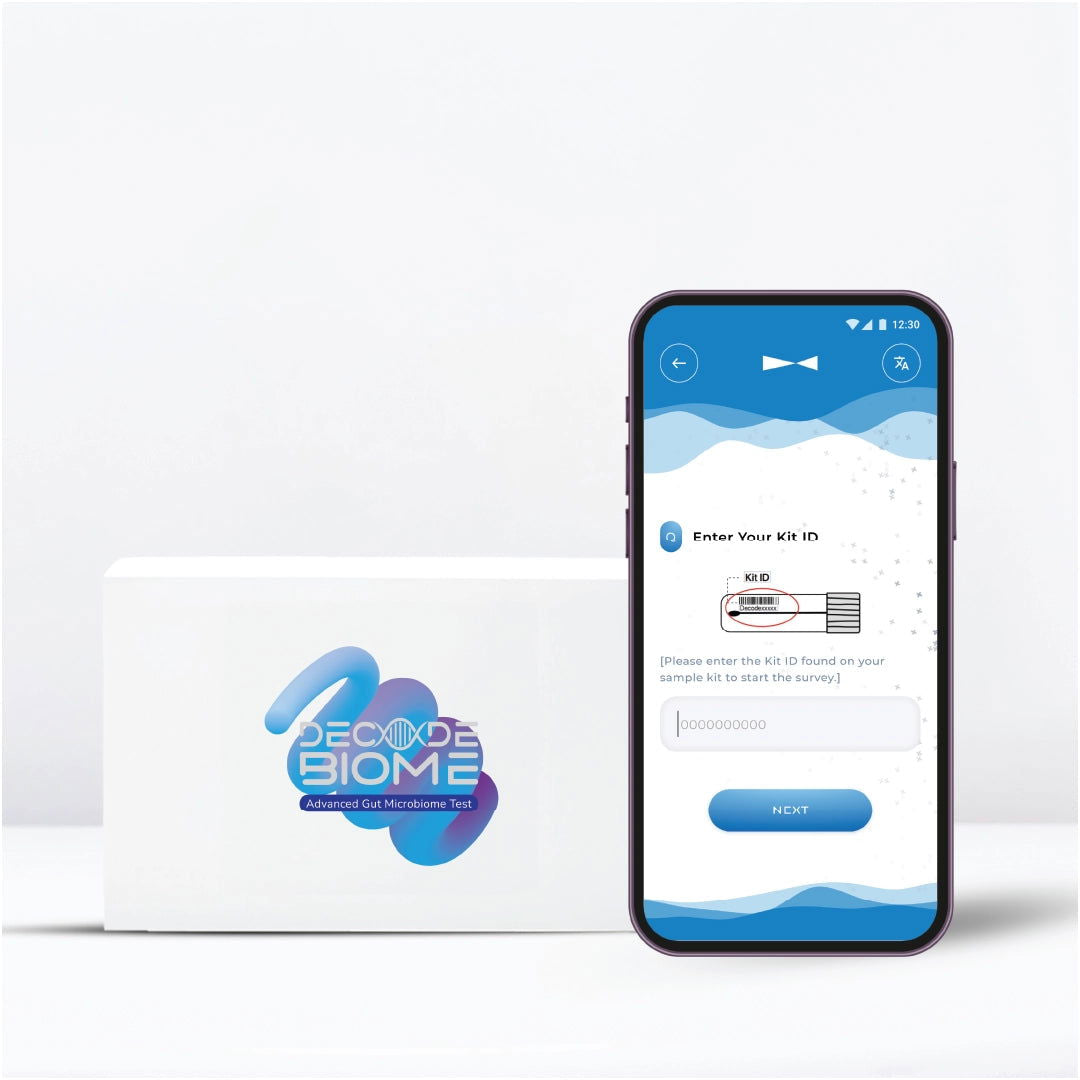
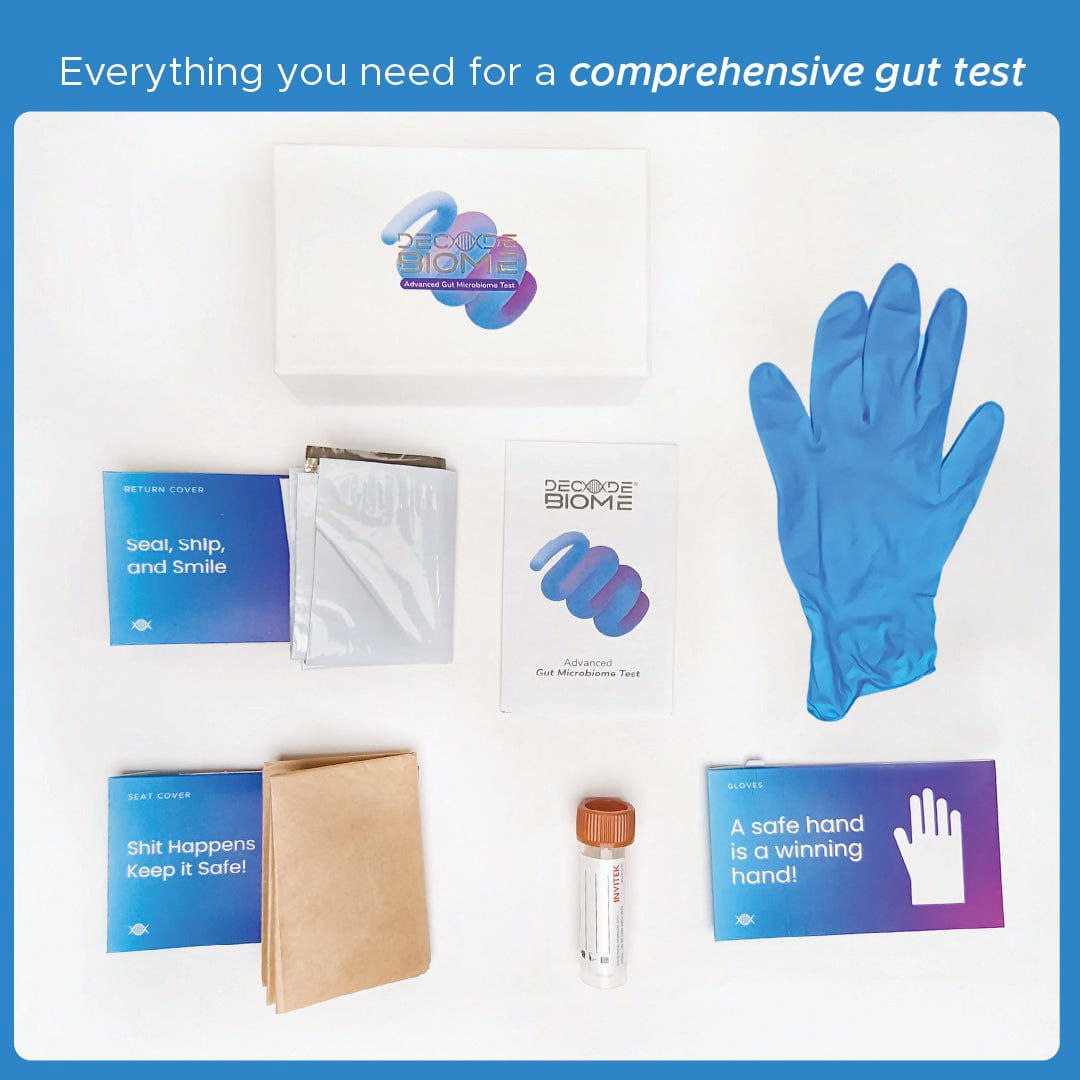
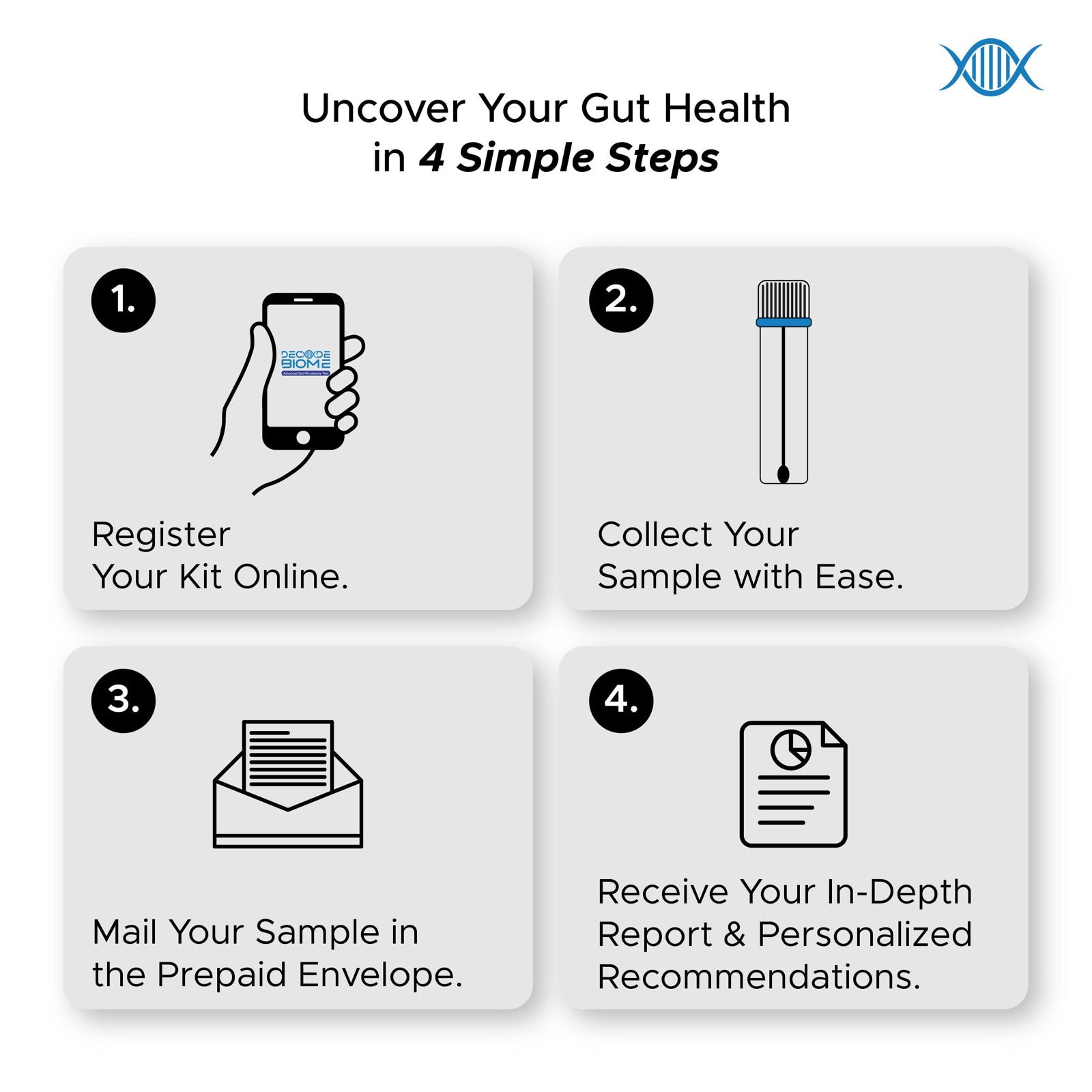
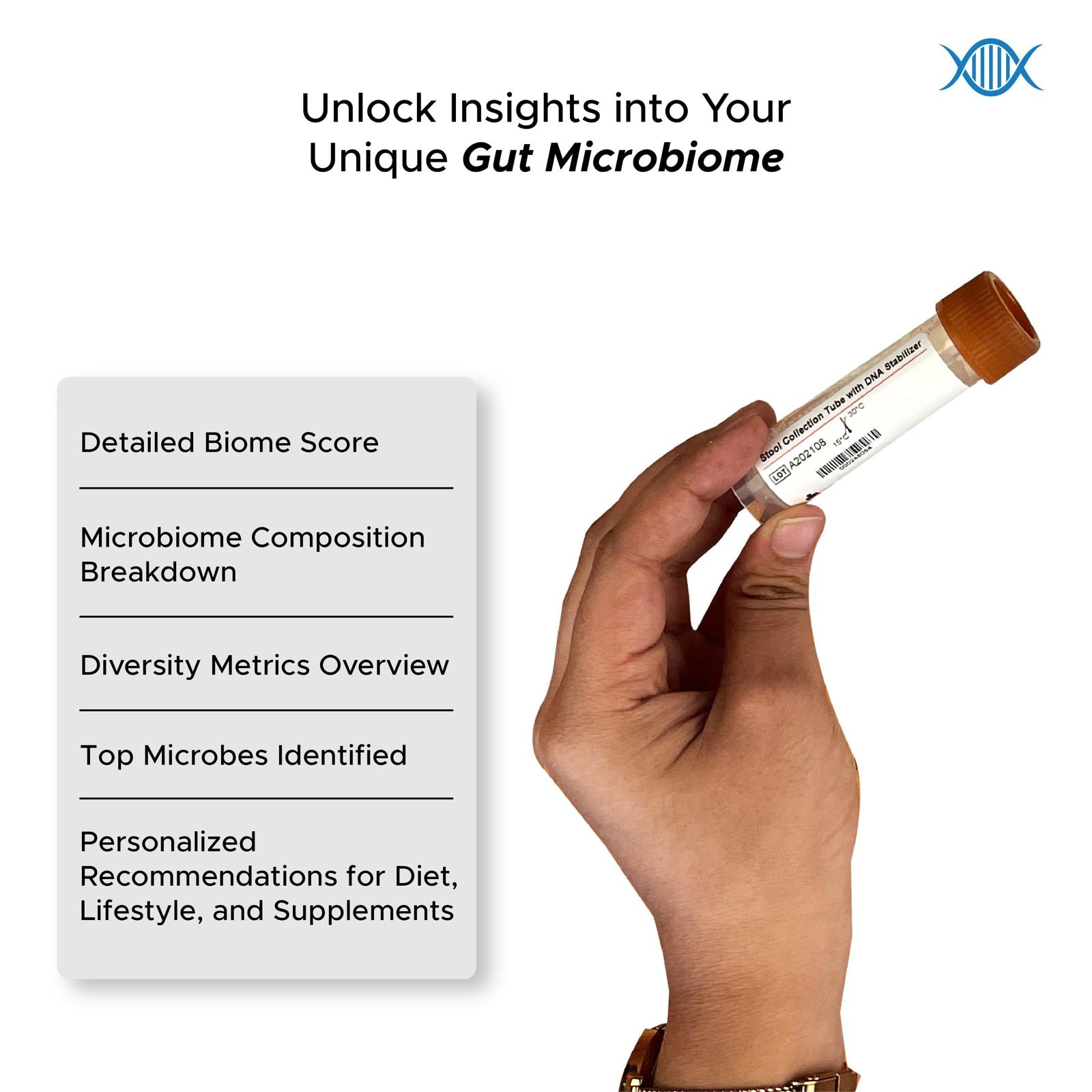
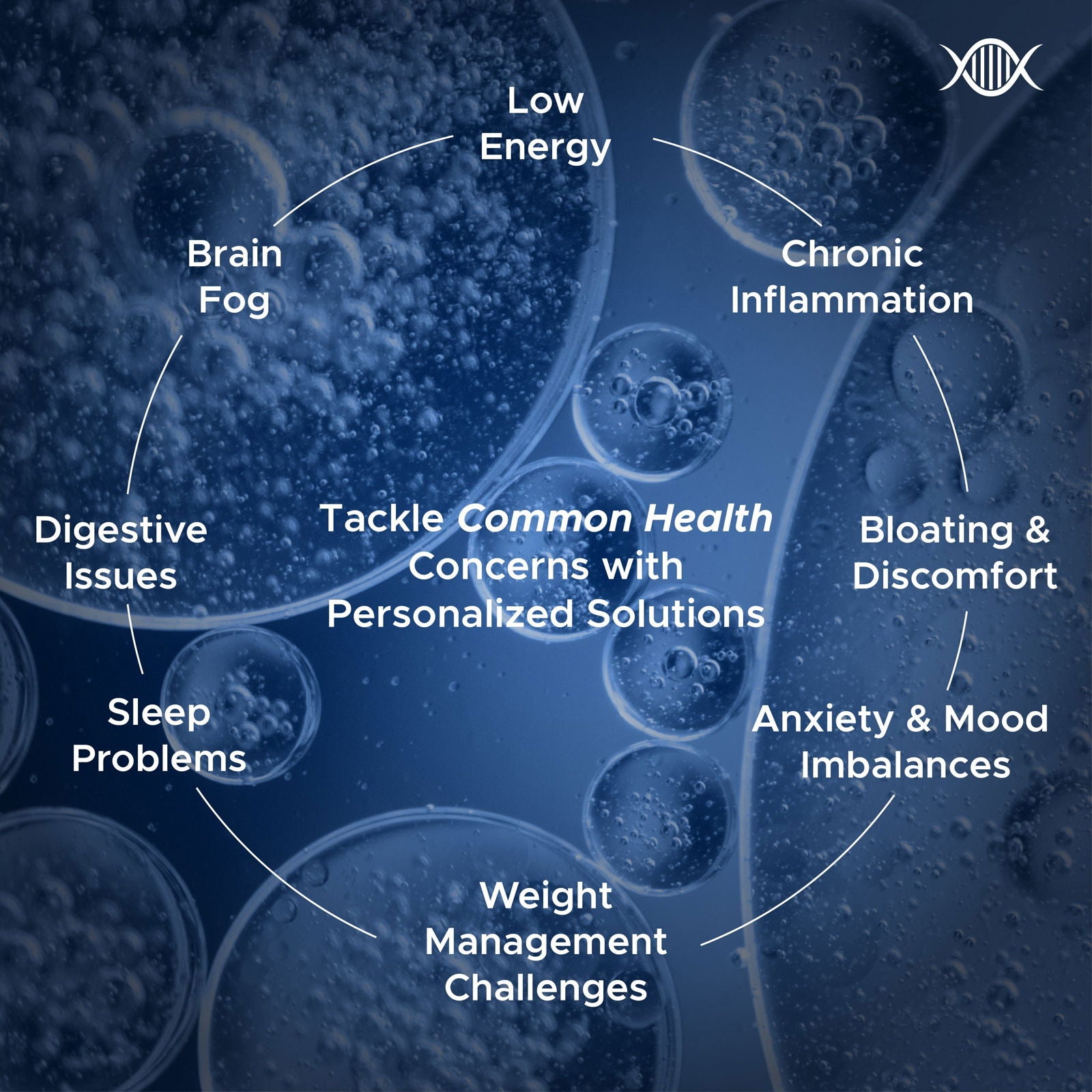


Decode Biome | Most Advanced Gut Microbiome Health Test | Precise Identification | Actionable Personalised Recommendations
Identifies: Taxonomic and Functional Potential
A comprehensive gut check that identifies the pathogens, commensals and probiotics. It also provides insights into the ability of gut microbiome to aid digestion and produce metabolites, which can significantly impact your health.
Reports: The microbial potential
The types and roles of your gut microbes and their potential effect on your health.
Consultation: Offers a 1:1 free consultation
Benefit from a free 1:1 consultation with our Nutrigenomics Expert. This helps you understand your report better and learn steps to improve your health.
Nutrition Plan: Provides a custom nutrition plan
Get a custom plan that not only addresses your current concerns but also sets you up for long-term health and well-being.
Sample collection:
Stool
Gut health features:
30+ Features
Results time:
Within 4 business weeks
Analysis:
Gut microbial DNA
Frequently Asked Questions

Get flat 5% off on your first order.

What do you get with every Decode Biome Health Test?
Detailed results of what lives in your gut
Receive a comprehensive breakdown of all your gut microbes—pathogens, probiotics, and commensals. Understand their potential health implications and the unique microbial community in your gut.
Digestion potential
Understanding how your gut microbes break down macronutrients is crucial for optimising health. Our technology examines the genes in your microbiome to reveal nutrient metabolism efficiency. This helps you make dietary adjustments for better nutrient absorption and digestive function.
Functional potential
Our analysis goes beyond identifying gut microbes to explore your microbiome's functional potential. We examine microbial species, both beneficial and harmful, and assess their metabolic potential. This reveals key health indicators that impact digestion, immune function, longevity, and quality of life.
1:1 Consultation with gut health expert
Enjoy a complimentary 1:1 session with a gut health expert to get a detailed analysis of your gut health. The session is essential. It helps you understand your report and take steps to enhance your health.
Food recommendations based on your health assessment.
Receive tailored recommendations targeting your gut health concerns. Correlate your microbiome with symptoms and receive suggestions to address the root causes of gastrointestinal issues i.e., occasional gas and bloating, irregular bowel movements, skin irritation, hormone imbalances, trouble sleeping, difficulty losing/gaining weight, and other symptoms related to poor gut health.
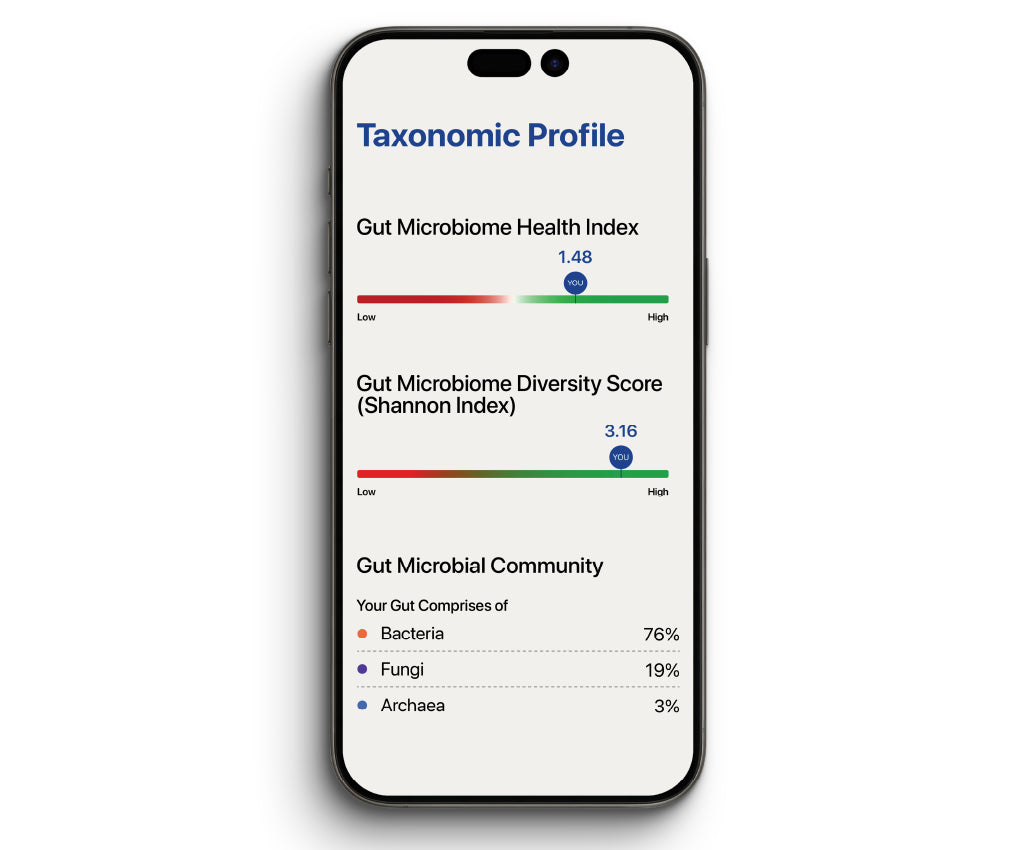
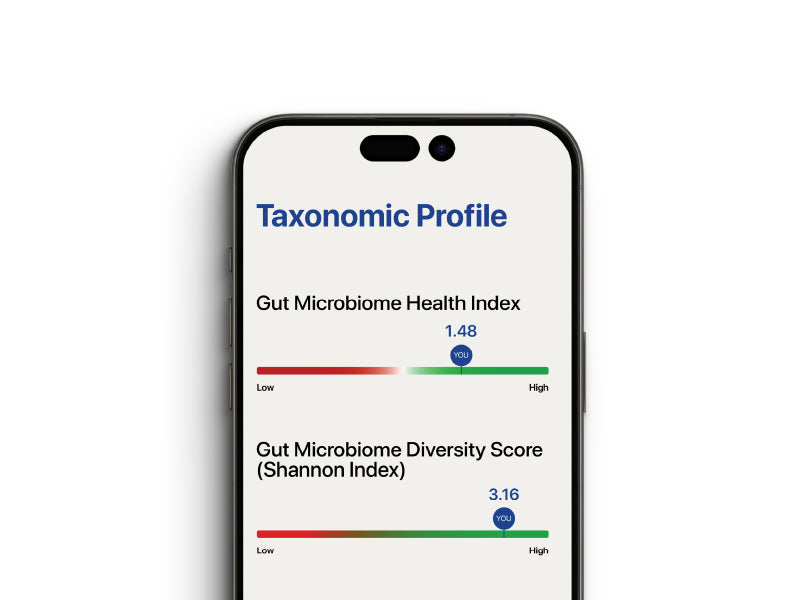
1 Detailed results of what lives in your gut
Receive a comprehensive breakdown of all your gut microbes—pathogens, probiotics, and commensals. Understand their potential health implications and the unique microbial community in your gut.
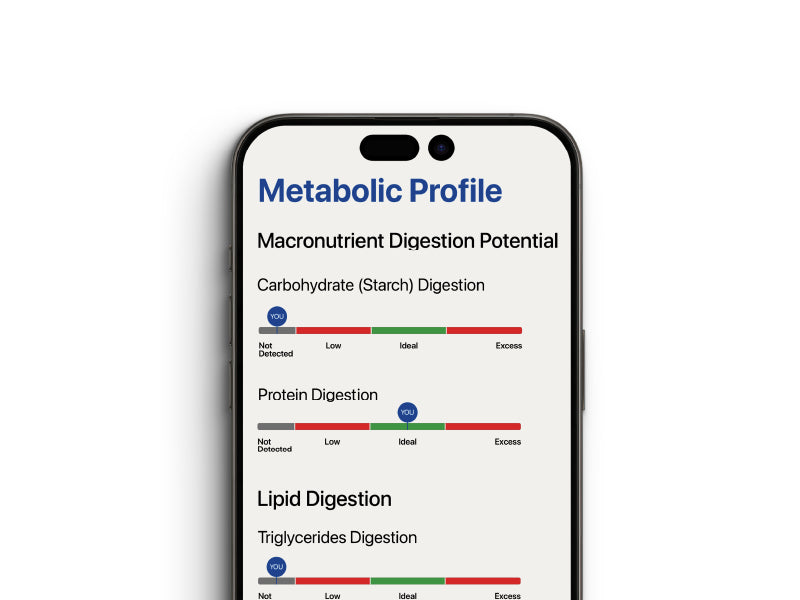
2 Digestion potential
Understanding how your gut microbes break down macronutrients is crucial for optimising health. Our technology examines the genes in your microbiome to reveal nutrient metabolism efficiency. This helps you make dietary adjustments for better nutrient absorption and digestive function.
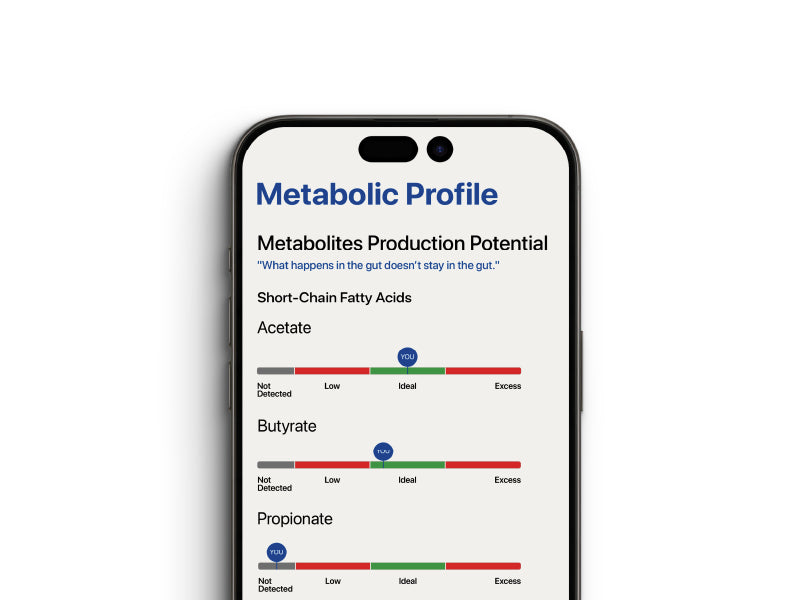
3 Functional potential
Our analysis goes beyond identifying gut microbes to explore your microbiome's functional potential. We examine microbial species, both beneficial and harmful, and assess their metabolic potential. This reveals key health indicators that impact digestion, immune function, longevity, and quality of life.
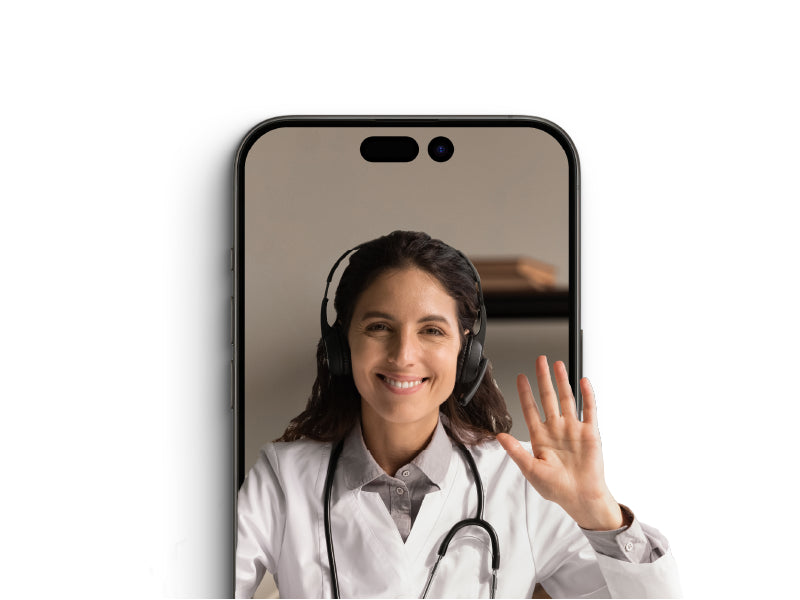
4 1:1 Consultation with gut health expert
Enjoy a complimentary 1:1 session with a gut health expert to get a detailed analysis of your gut health. The session is essential. It helps you understand your report and take steps to enhance your health.

5 Food recommendations based on your health assessment.
Receive tailored recommendations targeting your gut health concerns. Correlate your microbiome with symptoms and receive suggestions to address the root causes of gastrointestinal issues i.e., occasional gas and bloating, irregular bowel movements, skin irritation, hormone imbalances, trouble sleeping, difficulty losing/gaining weight, and other symptoms related to poor gut health.
How it works
Easy, convenient & comprehensive testing process at-home
1
Get your test kit
Everything you need to collect and ship your samples is included: Gloves, Biodegradable flushable seat cover, Collection tube with an attached scoop, and Return cover.
2
Collect your sample at home
No lab visit required! We'll provide a step-by-step guide and instruction video to assist you.
3
Register and complete your questionnaire
The questionnaire helps us to better understand your lifestyle and refine your recommendations.
4
Request a return pickup to our lab
Registration and questionnaire completion generates a request for sample pickup.
5
Receive your results within 4 business weeks
Your results will include your gut health features, consultation details, and more.
6
Nutrition & Lifestyle protocol
Consult with our gut health expert and receive your personalised Nutrition and Lifestyle Protocol.
Why test your gut with Decode Biome
Benefit from Our Advanced Technology
Make Data-Driven Choices
Learn How Your Gut is Adapting
Target Your Gut Health Concerns
Get Personal Counselling with a Nutritionist
Tailored Nutritional Plan to Fit Your Needs
India's First and Only Gut Microbiome Test with Agile Data Compliance
We prioritise your privacy and data security by adhering to the highest standards.
International Standards meeting ASIP Santé, NEN 7510, GDPR, and IRAP requirements
HITRUST CSF Certified* ensuring top-notch data security.
21 CFR Part 11 for reliable electronic record-keeping.
Interoperability using HL7 and FHIR standards
Government Approved and certified under FedRAMP Mod & High and DoD IL 2&4**.
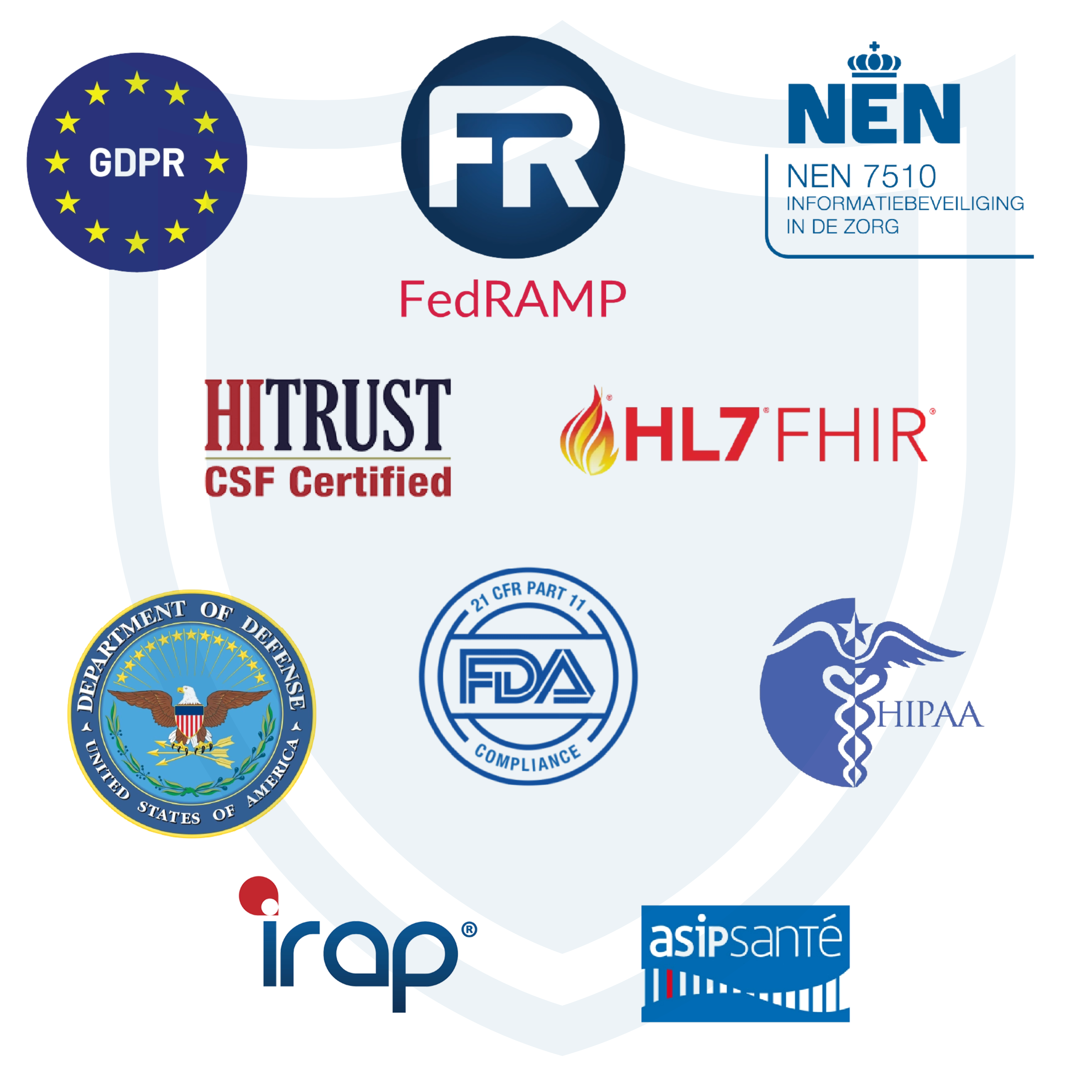
*While Decode Biome is HIPAA-compliant, some features may not yet be available. **Gov Cloud is our compliance environment that meets stringent government standards
FAQ: The Microbiome Knowledge
What is the Decode Biome Gut Microbiome Health Test?
The Decode Biome test is an advanced metagenomic analysis of your gut microbiome. It identifies the microbial composition in your gut, including bacteria, fungi, and archaea. It provides insights into their roles as pathogenic, commensal, or probiotic. Additionally, it explains how these microbes affect your health. It provides you with an actionable custom nutrient plan to improve your quality of life.
How do I collect my sample?
You can collect your sample at home using the test kit provided. The kit includes gloves, a biodegradable flushable seat cover, a return cover, and a collection tube with an attached scoop. Detailed instructions and videos are included to guide you through the process.
What is the minimum age to get Decode Biome Test?
The microbiome is developing within the first 18 years and therefore the test will offer limited information. We do not recommend testing unless advised otherwise by your doctor.
When should you not take the test?
You should avoid taking the test under the following conditions:
- If you have taken antibiotics in the last 2 weeks.
- If you have had a fever or infection in the past week.
- If you have consumed alcohol or drugs within the last 48 hours.
- If you are currently on your menstrual cycle or are pregnant. Kindly consider waiting until after these conditions have passed.
Do I need to visit a lab to take the test?
Requires no lab visit. The entire process can be done at home. After collecting your sample, register your kit online. Complete a digital questionnaire, and then request a return pickup to send it to our lab.
What will I learn from my test results?
Your results will include a detailed analysis of your gut microbiome. This will cover its digestive and functional potential. You will receive over 30 gut health scores. These features will show how your gut microbes affect your overall health. Additionally, you will get personalized nutritional recommendations and a custom diet plan. This plan is based on consultation and metadata analysis.
How long does it take to get my results?
You will receive your results within 4 business weeks from the time your sample reaches our lab.
What makes Decode Biome different from other gut health tests?
Decode Biome uses advanced metagenomic technology to analyze your gut microbiome in detail down to the species level. We focus on your microbiome's functional potential, identifying important genes and metabolites. Through metadata analysis, we provide actionable insights and personalized recommendations.
Is the test suitable for everyone?
Yes, the test is perfect for anyone looking to address health issues related to poor gut health. It is especially useful for those with digestive issues, mood and mental health problems. Athletes and doctors seeking to enhance performance, nutrition, and health can benefit.
How often should I test my gut health?
Gut health is dynamic and influenced by many factors. Periodically test to track changes, adjust your nutrition plan accordingly for optimal results.
How do I register my kit and complete the questionnaire?
After collecting your sample, register your kit online. Then, complete a digital questionnaire. This helps us connect your samples to you. It also allows us to tailor recommendations based on your medical history, medications, and allergies.
What if I need help understanding my results?
You will have access to a free one-on-one consultation with a gut health expert. They will help you understand your results and provide a detailed analysis and recommendations.
Can I track the progress of my sample?
Once you register your kit and send your sample to our lab, you can track its progress online. You will be able to do this until you receive your results.
What is the cost of the Decode Biome test?
For pricing information, please visit our website or contact our customer support team.
How do I request a return pickup for my sample?
After registering your kit and completing the questionnaire, you will receive instructions. These instructions will guide you on how to request a return pickup for your sample. Our logistics partners will handle the rest.






























